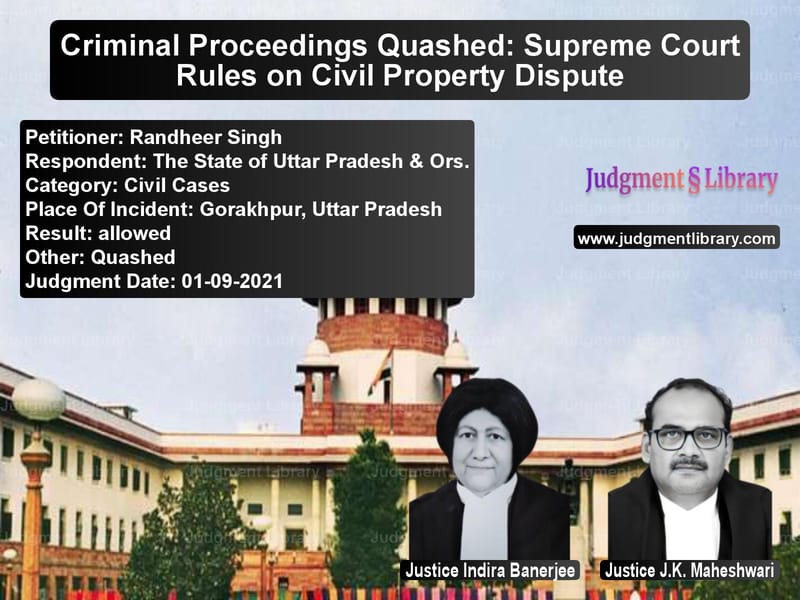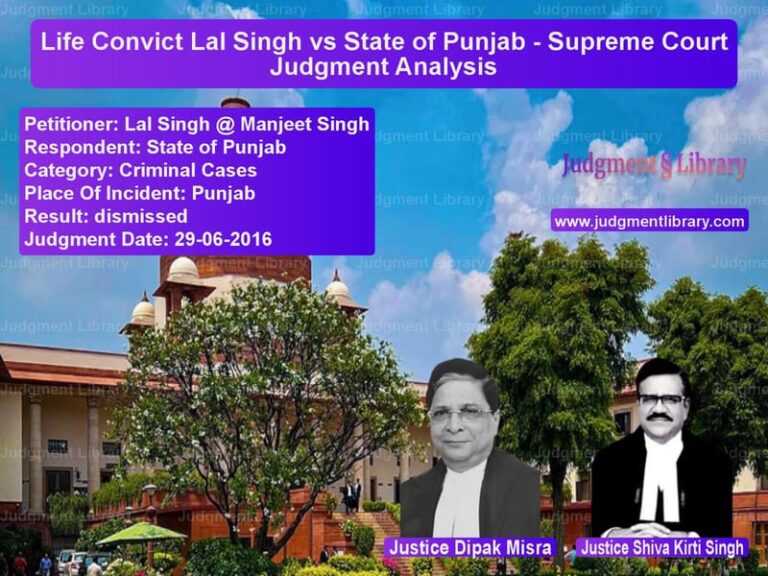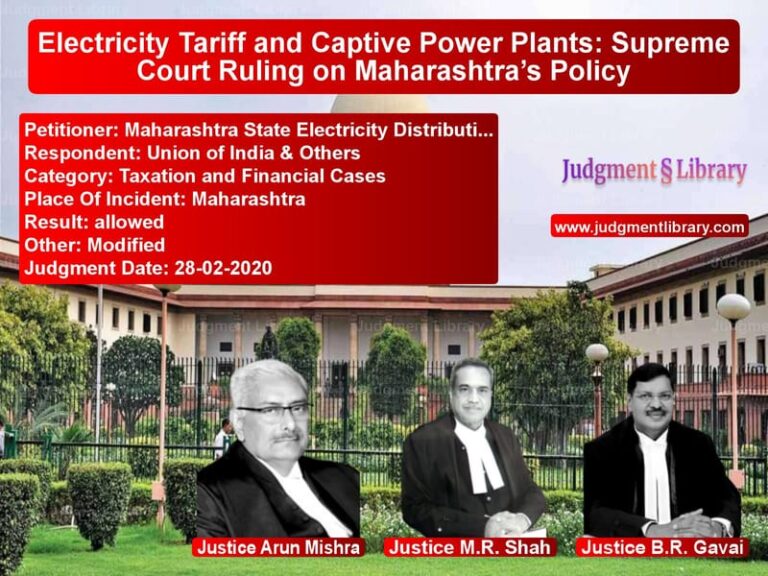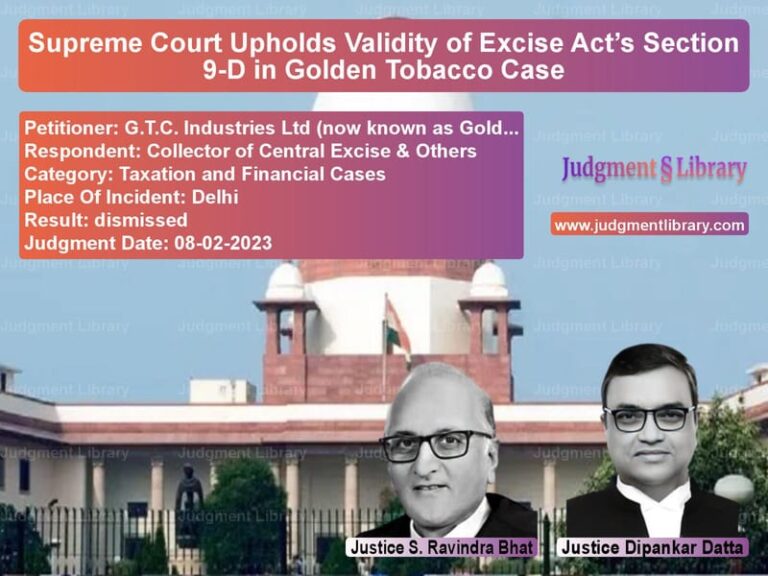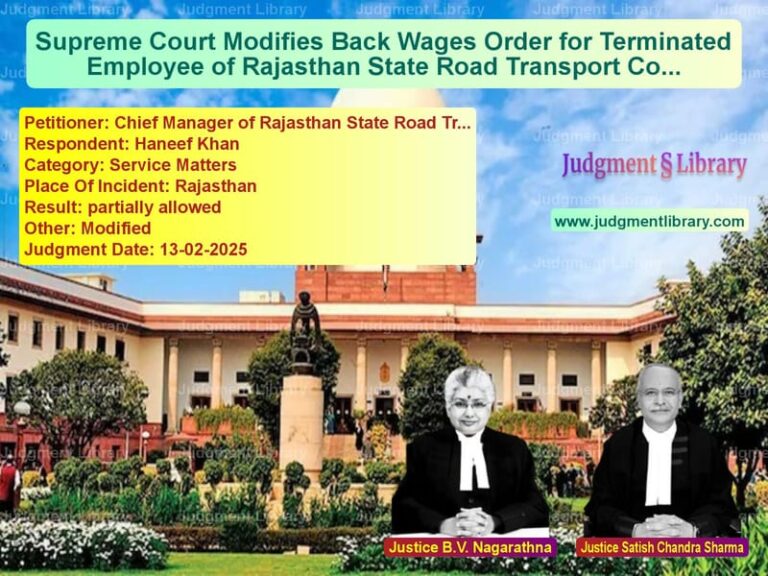Criminal Proceedings Quashed: Supreme Court Rules on Civil Property Dispute
The case of Randheer Singh v. The State of Uttar Pradesh & Ors. revolves around a property dispute that escalated into criminal proceedings, leading to a challenge before the Supreme Court. The Court had to determine whether the criminal charges, primarily based on a civil dispute, should be quashed. Ultimately, the Supreme Court ruled in favor of the appellant, quashing the criminal proceedings.
Background of the Case
The dispute emerged when Randheer Singh purchased a piece of land based on a power of attorney executed by one Bela Rani. The transaction was challenged by Beena Srivastava, who claimed that the power of attorney was fraudulent and that the sale deed was executed unlawfully.
The sequence of events was as follows:
- Randheer Singh and his family members acquired land through multiple sale deeds executed in July and August 2014.
- During the mutation proceedings, objections were raised, but the property was successfully mutated in favor of Randheer Singh.
- Beena Srivastava filed an Original Suit No. 971 of 2014 seeking cancellation of the power of attorney and sale deeds.
- The civil suit was dismissed under Order VII Rule 11 of the Code of Civil Procedure in September 2015.
- Despite appealing to the Allahabad High Court and the Supreme Court, Beena Srivastava was unsuccessful in overturning the dismissal.
- After exhausting civil remedies, a criminal case was initiated against Randheer Singh and others under Sections 420, 467, 468, and 471 of the IPC (offenses related to forgery and fraud).
- The police filed a charge sheet based on an FIR lodged by Beena Srivastava’s son, Dr. Virat Swaroop Saxena, in September 2017.
- Randheer Singh approached the Allahabad High Court under Section 482 of the Cr.P.C. to quash the criminal proceedings, but his plea was dismissed in December 2020.
- Aggrieved by the decision, he approached the Supreme Court.
Key Legal Issues
The Supreme Court had to answer the following questions:
- Did the criminal case against Randheer Singh constitute an abuse of process?
- Was there sufficient evidence to suggest that the sale deed was fraudulent?
- Could the dispute, primarily civil in nature, warrant criminal prosecution?
Petitioner’s Arguments (Randheer Singh)
The appellant, represented by Chandra Prakash, argued:
- The dispute was entirely civil, and the criminal charges were an attempt to harass him.
- The complainant had exhausted civil remedies and was using criminal law as a pressure tactic.
- The power of attorney executed by Bela Rani was legally valid, and the sale deeds were duly registered.
- There was no evidence of forgery or fraudulent intent.
Respondent’s Arguments (State of Uttar Pradesh and Complainant)
The complainant and state authorities countered:
- The power of attorney was allegedly fraudulent, which justified criminal action.
- The police investigation revealed discrepancies in the documentation.
- The High Court had correctly dismissed the plea for quashing the FIR and charge sheet.
Supreme Court’s Observations
The Supreme Court carefully examined the records and made the following observations:
- The civil dispute had already been decided, and no fraud was established in civil court.
- “Criminal law should not be used as an instrument to settle civil disputes,” the Court stated.
- The FIR and charge sheet did not disclose any material evidence of forgery or criminal intent.
- “When civil courts have adjudicated the dispute, and no fraud is found, criminal proceedings cannot be initiated merely to harass the parties.”
Supreme Court’s Judgment
The Supreme Court ruled in favor of Randheer Singh and:
- Quashed the FIR and charge sheet against him.
- Set aside the Allahabad High Court’s order.
- Held that using criminal proceedings as a substitute for civil remedies is an abuse of law.
Key Takeaways from the Judgment
- Civil and Criminal Law Are Separate: A civil dispute cannot be converted into a criminal case unless fraud or forgery is clearly established.
- Preventing Abuse of Process: Criminal proceedings should not be used to pressurize parties after losing in civil court.
- Role of High Courts in Quashing Cases: High Courts must exercise discretion in preventing frivolous criminal litigation.
- Legal Clarity on Property Disputes: Once a civil court has ruled on a property transaction, criminal charges should not be entertained without substantial evidence.
- Protection for Property Buyers: Individuals who purchase property lawfully should not face criminal prosecution unless there is clear evidence of wrongdoing.
Conclusion
The Supreme Court’s ruling in Randheer Singh v. The State of Uttar Pradesh & Ors. reinforces the principle that criminal law should not be used to settle civil disputes. This judgment protects individuals from undue harassment and ensures that legal processes are not misused for personal vendettas. The ruling serves as an important precedent in preventing frivolous criminal cases arising from property disputes.
Petitioner Name: Randheer Singh.Respondent Name: The State of Uttar Pradesh & Ors..Judgment By: Justice Indira Banerjee, Justice J.K. Maheshwari.Place Of Incident: Gorakhpur, Uttar Pradesh.Judgment Date: 01-09-2021.
Don’t miss out on the full details! Download the complete judgment in PDF format below and gain valuable insights instantly!
Download Judgment: randheer-singh-vs-the-state-of-uttar-p-supreme-court-of-india-judgment-dated-01-09-2021.pdf
Directly Download Judgment: Directly download this Judgment
See all petitions in Property Disputes
See all petitions in Contract Disputes
See all petitions in Specific Performance
See all petitions in Judgment by Indira Banerjee
See all petitions in Judgment by J.K. Maheshwari
See all petitions in allowed
See all petitions in Quashed
See all petitions in supreme court of India judgments September 2021
See all petitions in 2021 judgments
See all posts in Civil Cases Category
See all allowed petitions in Civil Cases Category
See all Dismissed petitions in Civil Cases Category
See all partially allowed petitions in Civil Cases Category

